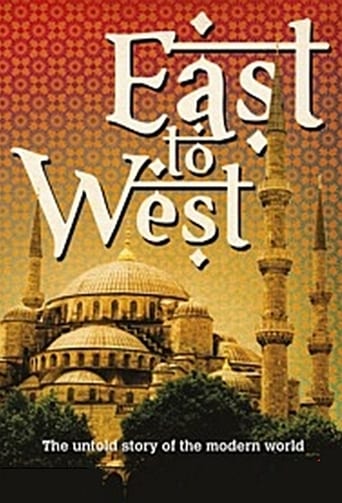lloyd1018
I was moved to write this review in response to the episode entitled The Triumph of Monotheism. I like the general theme of this series however I have an issue with this particular offering. It really bugged me that the narrator continually referred to Monotheism as a pre condition to the flourishing of western culture. Really!!! Why? That question was never asked which I found very disappointing. The Romans did pretty well for hundreds of years worshiping multiple gods so what's so inferior with that system of religion? I'm agnostic so religion isn't an important part of my life. In spite of that I find it disturbing that a documentary pre supposes the superiority of one form of religious belief without any evidence to back it up. Makes me question the quality of the writing in the rest of the series. And just lastly can someone please make a history doco without the gushing presence of Bettany Hughes.
Kiril Trichkov
The point of this documentary seems to be introducing historically uniformed people to the legacy of civilisations they probably don't know much about, and how that legacy is intertwined with important and well-known periods of history like ancient Greece, the Renaissance, etc. Yet the narration constantly contradicts the whole 'intertwined' idea by dichotomising East and West. I know it's in the title, and is the theme of the series, but they've taken it much too far, as there are several segments in just the first episode, a few minutes long each, where every single sentence contains the words 'East' and 'West'. Even when the point is that there was no such distinction between East and West in the period/location they're talking about. It's not only bothersome, but demonstrates that whoever approved the final version of this production was not aware of or did not understand what the series was talking about.This, and some suspect pieces of information presented, lead me to believe that this documentary was not as thoroughly researched as it should have been, and instead focused on fitting whatever relevant segments it could find into its theme of 'East to West'.Still, it should be mentioned that, if you can persist through the aforementioned 'East' and 'West' heavy segments, there's a fair amount of interesting information available.
saukkomies-884-794564
It would be nice if the accuracy of such a documentary could be relied on, but there are so many mistakes and contradictory statements in this film that even the accurate information becomes suspect.Just one of many examples is in episode 3, which is giving a history of the Arabs. The narrator says in the beginning that the Arabs were a scattered group of nomadic tribes until Mohammed came along. Then for the next half hour of the episode they describe the various civilizations, kingdoms, cities, and states that the Arabs established before Mohammed came on the scene. It is hard to equate the bustling state of the Nabataeans or the city of Damascus with "nomadic tribes".It is sad, because the visual scenery and on location settings obviously took a lot of money and time to produce, but the writing is flawed. Producing a historic documentary ought to include making certain that the actual history being told is accurate and consistent.
lmahayni
I recommend seeing this at least once. It's full of enlightening facts and ideologies usually obscured by Western bias. I'd give this 10 out of 10 based on how much I love this series, however, it does have some glitches.A - Although it is well thought out and written, the pacing tends to make the intensely interesting information take on a sleepy quality.B - The editing appears to have been done separately from the narration and translation to the point where some edits are outright awkward. In one instance a Turkish man describes the importance of the information on an ancient frieze. The clip is cut off just after his subtitle reads "and this is important because-." In another instance the narrator announces "the crown jewel of the Sultan's fleet," while the visual clip follows a female historian from an angle that looks straight down at her chest. In a third instance, an archaeologist explains how, in a specific region of ancient Mesopotamia, the eyes of statues were all made with shells and lapis lazuli (a blue stone) but she does not comment on whether this indicates that the people were also all blue-eyed. These instances are not frequent, but are jarring for someone who is watching closely.NONETHELESS, the visuals and the information are quite enthralling. To accommodate any more information would require the series to be twice as long. I wouldn't mind if it were longer.

